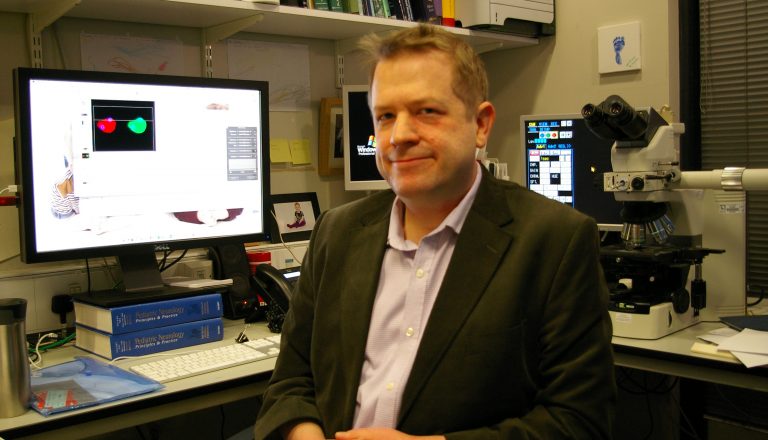Researchers whose work was co-funded by Children with Cancer UK say there is scope for ‘substantial clinical impact’ through assessment of the switches that alter what happens to DNA in paediatric
brain tumours. Their study, published in The Lancet Child and Adolescent Health, involved more than 300 childhood brain tumour diagnoses between 2016 and 2018. Traditionally, childhood brain tumours have been diagnosed and categorised following microscopic examination of cells within the tumour. However, recent developments enable scientists to analyse a process known as methylation – effectively a ‘stop-go’ flag in parts of the DNA which determines whether it is activated. Methylation can either help or hinder tumour growth. The researchers, led by Professor Thomas Jacques at the UCL Great Ormond Street Institute for Child Health, say methylation profiles improved the accuracy of the child’s diagnosis in 107 cases (35% of those assessed). This meant they were able to define the tumour subtype more accurately in 99 cases. They changed the diagnosis in five cases and made “potentially significant predictions” in three cases. The team suggest it may have changed the treatments offered to the child in 11 cases. In addition to impacting on diagnosis and standard treatments, the researchers say this information could be used in the future to identify children with tumours that would benefit from forthcoming clinical trials. When Professor Jacques matched the new information to clinical trials he and his colleagues are planning, he estimated that in the near future a different treatment may be available for up to 10% of the children diagnosed. This new information can also be used to reassess older brain tumour samples. Using up-to-date methods, along with methylation profiling technology, Professor Jacques and his team looked at 195 tumours that were “historically difficult-to-diagnose”. They found that today they were able to diagnose 68% of these previously undiagnosed tumours. The researchers say:
Our findings suggest that methylation profiling provides substantial clinical impact in childhood brain tumours by refining diagnosis and changing treatment, and that it should be considered as a routine test in assessing such children.
The technique works equally well for all ages of children and adolescents but is more effective in identifying some tumours, including
medulloblastoma and a particular form of diffuse midline glioma (formerly known as DIPG) than others such as low grade gliomas and glioneuronal tumours. Children with Cancer UK co-funded the research with The Brain Tumour Charity and Great Ormond Street Children’s Charity.
Mark Brider, Chief Executive Officer, Children with Cancer UK said:
Brain tumours are among the most common childhood tumours, with around 400 new cases in the UK each year.
These types of cancer are often difficult to treat and current therapies can be extremely debilitating. More individualised and kinder treatments will not only increase survival rates but also reduce the often life-limiting side effects for survivors.That’s why we are happy to see the progress Dr Jacques and his team have made. Children with Cancer UK will continue to invest in research like this which we believe will lead to substantial advances in the diagnosis of childhood brain tumours.

